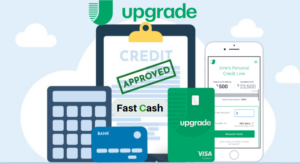Getting a home is a big step. It’s important to find the right mortgage for this journey. When you choose a loan that fits your money matters, you’re on your way to getting your dream home. The right mortgage helps make buying a home easier and keeps your finance goals on track.
Different mortgage options exist, and it’s key to know them. This knowledge lets you make smart choices. These choices help make your dream of owning a home come true.
Key Takeaways
- Choosing the right mortgage is crucial for successful homeownership.
- Understanding your financial situation helps in selecting the best home loan.
- A variety of mortgage options are available to cater to different needs.
- Securing the right mortgage streamlines the home-buying process.
- Properly aligned housing finance supports long-term goals.
Understanding Different Types of Home Loans
Choosing the right mortgage option is crucial for potential homebuyers. This section gives a summary of the main home loan types available. It aims to help you make a wise decision for your future investment.
Fixed-Rate Mortgages
Fixed-rate mortgages are very popular among those buying homes. They are appealing because the interest rate stays the same during the loan period. This makes your monthly payments predictable, simplifying budgeting. It also provides a sense of security in unpredictable markets.
Adjustable-Rate Mortgages
An adjustable-rate mortgage (ARM) has its own advantages. Unlike fixed-rate ones, ARM interest rates can change over time. At first, their rates are often lower, leading to smaller initial payments. But after an introductory phase, the rates can go up or down with the market. This means your monthly payments could change too.
Government-Backed Loans
Government-backed loans offer unique advantages for those who qualify. There are two main kinds:
- FHA Loans: Offered by the Federal Housing Administration, FHA loans require lower down payments and have flexible credit rules. They are great for first-time buyers or those with lower credit scores.
- VA Loans: These loans are for veterans, active-duty service members, and certain military spouses. Sponsored by the Department of Veterans Affairs, VA loans often need no down payment and have good rates.
Getting to know these mortgage options can make buying a home easier. This allows you to choose the best loan for your financial situation and future goals.
How Mortgage Rates Affect Your Home Loan
It’s vital that any potential homebuyer understands how mortgage rates impact their home loan. These rates strongly influence your loan’s overall cost and the monthly payments you’ll need to make. Fluctuations in these rates, caused by economic factors and market conditions, can significantly alter your monthly expenses.
Factors Influencing Mortgage Rates
Mortgage rates are determined by several key factors. Among these are the Federal Reserve rates and the performance of bond markets. Additionally, the state of the economy, employment rates, and inflation levels can sway interest rates. Being aware of these can help you foresee changes in rates and make smarter mortgage choices.
- Federal Reserve Rates: Mortgage rates often change in response to Federal Reserve rate adjustments.
- Bond Markets: The performance of bonds influences mortgage rates. If bond prices drop, mortgage rates usually go up, and if they rise, rates tend to decrease.
- Economic Indicators: Employment rates and inflation can hint at upcoming changes in interest rates.
Impact on Monthly Payments
The way interest rates affect your monthly mortgage payments is clear-cut. If mortgage rates go up, so do your monthly payments, affecting your budget. On the flip side, lower rates can make buying a home more affordable by decreasing what you owe each month.
Getting a loan at a lower interest rate means your monthly payments will be easier to handle. This saves room in your budget for other financial objectives.
“Monitoring mortgage rates and understanding their impact can save you a significant amount of money over your loan’s lifespan.”
Staying updated on mortgage rates allows you to make informed decisions about buying or refinancing a home. This can greatly improve your financial health.
The Role of a Mortgage Broker
Finding the right home financing can be hard, especially if it’s your first time buying a home. A mortgage broker makes this easier. They connect borrowers with lenders to help find the best loan.
What Does a Mortgage Broker Do?
A mortgage broker looks for the best loan for you. They work with different banks to find a good match based on your finance. They help get all the needed paperwork and can get you better loan terms.
Advantages of Using a Mortgage Broker
Using a mortgage broker has many benefits when you’re trying to finance a home:
- Personalized Service: They give one-on-one help, making sure your financial needs are met.
- Access to Various Loan Options: They can offer many loan types because they know many lenders.
- Cost Savings: Their knowledge can get you lower rates and better loan terms, saving you money.
- Streamlined Application Process: Brokers do a lot of the work, making the loan process faster and less stressful.
Steps to Getting Mortgage Pre-Approval
Getting a mortgage pre-approval is key when buying a home. It shows sellers you’re serious and can put you ahead in a competitive market. Here are the main steps to getting that pre-approval.
Gathering Necessary Documentation
First, you need to collect important documents. These documents prove your financial stability and creditworthiness. Lenders will usually ask for:
- Proof of income: Recent pay stubs, W-2 forms, and, if applicable, tax returns.
- Assets: Bank statements, retirement accounts, and other investments.
- Employment verification: Contact information for your employer or recent employment verification letters.
- Credit report: A detailed look at your credit score and debts.
Make sure these documents are ready and accurate to speed up your application. It’s crucial to have these documents prepared early to avoid any delays.
Meeting Financial Criteria
Lenders check financial criteria to decide on your pre-approval. Important factors include:
- Credit Score: A better credit score gets you better interest rates.
- Debt-to-Income Ratio (DTI): This ratio compares your debt payments to your income. A lower DTI is better.
- Down Payment: More down payment can mean better pre-approval odds and interest rates.
| Factor | Importance |
|---|---|
| Credit Score | Impacts interest rates and approval chances |
| Debt-to-Income Ratio | Shows financial health and ability to repay the loan |
| Down Payment | Lowers loan amount and interest costs |
Understanding these criteria and meeting or exceeding them helps with pre-approval. It makes your application stronger and shows sellers you’re ready to buy. Successfully completing these steps brings you closer to getting your dream home.
First-Time Homebuyer Tips
Starting your journey to buy your first home is both thrilling and challenging. We have vital tips to make the process easier for first-time buyers. Our aim is to ensure a smooth and successful experience.
Understanding Your Budget
Before jumping into home buying, setting a realistic budget is key. Look at your finances, including income, spending, and debts. A solid budget shows how much you can spend on your home every month.
- Calculate your total monthly income.
- List all monthly expenses, such as groceries, utilities, and entertainment.
- Identify any outstanding debts, such as student loans or credit card balances.
- Factor in regular savings and emergency funds.
Analyzing your finances helps find a home price range you can afford. It keeps your finances in balance.
Choosing the Right Neighborhood
Finding the perfect location for your home is crucial for happiness and a good investment. Think about factors that fit your lifestyle and future. Doing your homework on neighborhoods is essential.
- Local Schools: Important if you have or want kids, the quality of nearby schools is key.
- Commute Times: How close you are to work or public transport can impact your daily life.
- Community Amenities: Things like parks, malls, and gyms make a place more attractive.
- Property Value Potential: Look into how the area’s housing market is doing and if homes might gain value.
Consider these points to find a neighborhood that suits your current and future needs.
| Factor | Importance |
|---|---|
| Local Schools | High |
| Commute Times | Medium |
| Community Amenities | High |
| Property Value Potential | High |
Using a Loan Calculator for Better Insights
Understanding your future mortgage payments is key for budgeting. A loan calculator helps you see what you can afford. It does this by comparing different home loan options.
For those looking to borrow, a loan calculator is very useful. It estimates your monthly payments. This is based on how much you borrow, the loan term, and interest rates. This way, you can see if you can afford the loan and understand the impact of your choices.
When you use a loan calculator, it provides a detailed payment breakdown. This shows how changes in interest rates or loan terms affect your payments. By looking at these changes, you can predict how rate increases might change what you pay each month.
Also, a loan calculator helps with future financial planning. It lets you see and plan for your financial stability. By checking different loan options, you make a choice that suits your budget and goals.
To sum up, using a loan calculator helps with wise financial planning. It shows the costs of different loans, helping you choose the right mortgage. This supports your goal of buying a home.
Benefits of Mortgage Refinancing
Thinking about mortgage refinancing can be a smart move. It often means lower interest rates. That can add up to big savings during your loan’s lifetime. By refinancing, your monthly payments could be lower too. This makes handling your finances a bit easier.
Mortgage refinancing lets you get to your home equity. This is great for big expenses like fixing up your house or paying for school. It can also help pay off debts with high interest. If the market’s right, refinancing is a smart way to handle money.
Refinancing gives you choices on how long to pay off your home. You can choose a shorter term to finish paying sooner. Or, you might stretch it out to lower your monthly payments. It’s also possible to go from a fixed-rate to an adjustable-rate mortgage, or vice versa.
But, refinancing needs careful thought. Consider the costs and your long-term financial goals. It’s important to check if the savings are more than the costs. Refinancing works best when it matches your financial plans. It helps you manage your mortgage and home equity better.
| Benefits | Details |
|---|---|
| Lower Interest Rates | Save money over the life of the loan with reduced rates. |
| Reduce Monthly Payments | Easier financial management with lower payments. |
| Access Home Equity | Utilize your equity for major expenses or debt consolidation. |
| Adjust Loan Term | Shorten or extend your loan term as needed. |
| Switch Rates | Move between fixed and adjustable rates based on market conditions. |
Deciding on mortgage refinance depends on your personal financial situation and goals. Getting lower rates and using your home equity can lead to financial stability. It can also give you more flexibility with your money.
Why Choosing the Right Mortgage Lender Matters
Choosing the right mortgage lender is key to a smooth home buying journey and good loan terms. Looking at different lenders can seem tough, but it’s vital to find one that fits your financial situation and goals.
Comparing Lenders
To choose wisely, compare lenders on key points:
- Loan Terms: Check the loan’s length and type. Think about if you want a fixed-rate or an adjustable-rate mortgage.
- Interest Rates: Interest rates affect your monthly payments and the overall cost. Compare lenders to find competitive rates.
- Fees: Know the extra fees like origination fees, closing costs, and prepayment penalties.
- Eligibility Requirements: Check the lender’s requirements for credit scores, income, and down payments to see if you’ll likely be approved.
Evaluating Customer Service
Great customer service is crucial in the mortgage process. With good customer service, a lender will guide you, quickly answer your questions, and support you when needed. This makes for a smooth process, keeping you informed and comfortable all the way.
Conclusion
Finding the right mortgage is crucial for homeownership. Knowing about fixed-rate, adjustable-rate, and government-backed loans helps make smart choices. This knowledge helps plan your finances well.
Also, getting pre-approved for a mortgage smooths the journey. First-time homebuyers need to understand their budget and pick the right area. Using a loan calculator and knowing when to refinance can save money.
Choosing the best mortgage lender impacts your loan and experience. It’s important to compare lenders and their service. With these tips, you can confidently navigate the mortgage world and find the best deal for your home and finances.













